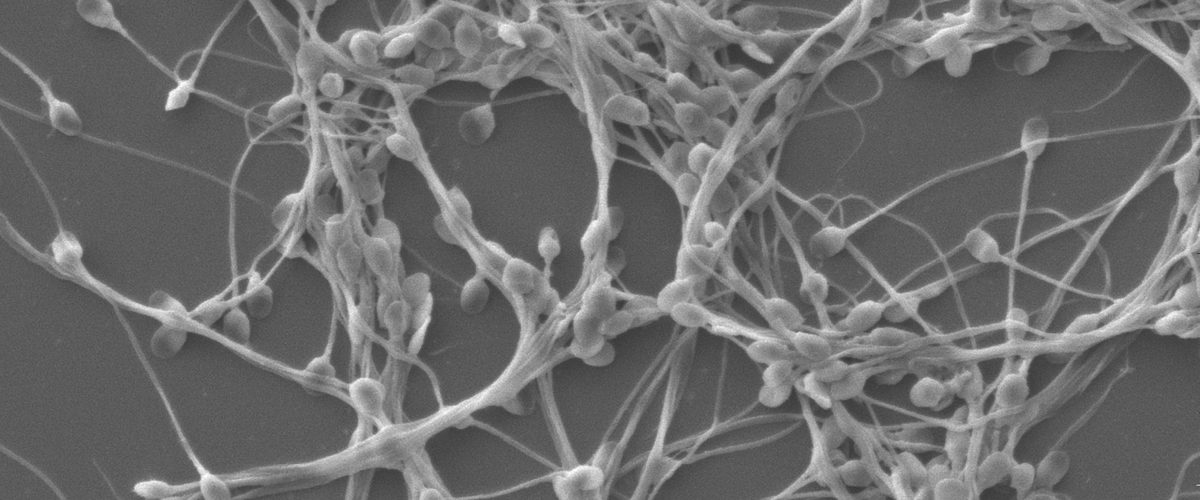A New Breed of Nonhormonal Birth Control
The Brink - by Jessica Colarossi When it comes to birth control options for women, little has changed in the past couple of decades. In fact, according to Planned Parenthood, there are only three birth control methods that are over 95 percent effective at preventing an unintended pregnancy: the birth control implant, the... More
Expanding Contraceptive Choices
NICHD Director's Corner by Diana W. Bianchi Multipurpose Prevention Technologies With NICHD support, researchers at Boston University aim to develop an on-demand female MPT product that prevents pregnancy and protects both partners against STIs. They and collaborators created a vaginal film containing an anti-sperm antibody called human contraceptive antibody (HCA). Recent findings... More
Deborah Anderson, PhD, Receives NIH Award to Advance Research on Products that Control Sexual Transmission of Viruses, Provide Contraception
Boston University School of Medicine Deborah Jean Anderson, PhD, professor of medicine, has received a four-year, $7.2 million grant from the NIH’s National Institute of Child Health and Human Development renewing support for a Contraceptive Research Center (CRC) to further her research to develop innovative monoclonal antibody (mAb)-based contraceptive and multipurpose... More
Engineered antibody that snags sperm could be an effective non-hormonal contraceptive
Chemistry World by Anthony King An engineered antibody could be a potent non-hormonal contraceptive for women, ensnaring sperm and inactivating them before they can fertilize the egg. The antibody was developed from a natural one discovered in an immune-infertile woman by a Japanese group in the 1980s. The engineered antibody was produced... More
An Investigational Vaginal Film Could One Day Prevent Pregnancy, HIV, Herpes
Contraceptive Technology Update Early trial suggests film is effective, easy to use Researchers are studying a novel contraceptive delivery system, which uses a vaginal film to produce antibodies to sperm. The same film also could be developed to protect against HIV infection and herpes (HSV).1,2 “It’s been known for some time that a... More
An Experimental Birth Control Attacks Sperm Like a Virus
Wired Magazine - by Sara Harrison Monoclonal antibodies have been touted for their potential to fight off infections like Covid-19. Could they be used as contraceptives too? OVER THE MILLENNIA, people have come up with some very effective ways to avoid having babies. The ancient Egyptians and Greeks used linen sheaths and animal... More
Topical contraceptive safely, effectively immobilizes sperm
Healio News - by Richard Gawel An anti-sperm monoclonal antibody has been found to be safe and possess potent sperm agglutination, or clumping, and immobilization activity in laboratory tests, according to a study published by EBioMedicine. Researchers from the Boston University School of Medicine (BUSM) and ZabBio — a company that develops... More
Scientists develop contraceptive antibodies that PARALYZE sperm and could be added to gel that dissolves in the vagina
Daily Mail - by Dan Avery Scientists at Boston University's School of Medicine have developed an antibody they say causes sperm to clump together and become immobile. Developed in conjunction with San Diego-based ZabBio, the Human Contraception Antibody (HCA) was tested on sperm from normal, healthy volunteers in a variety of concentrations... More
Potential New Contraceptive That Uses Antibodies Against Sperm Developed By Researchers
IFLScience - by Alfredo Carpineti A team from Boston University School of Medicine (BUSM) and Californian company ZabBio have developed an intriguing new contraceptive. The birth control method is a film that is dissolved in the vagina and it is rich in monoclonal antibodies that can attack a particular protein found... More
“Woman-controlled, on-demand” contraceptive product developed in US
Drug Target Review - by Anna Begley US researchers have developed an antisperm monoclonal antibody that could become a safe and effective birth control method. A research team from the Boston University School of Medicine (BUSM) and ZabBio, both US, have created an antisperm monoclonal antibody, known as the Human Contraception Antibody... More
